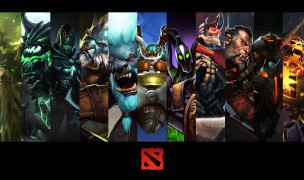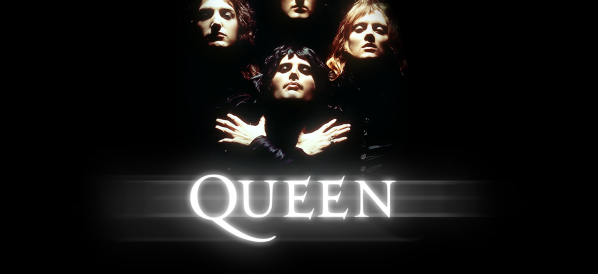 9 Terms
9 TermsHome > Terms > English, UK (UE) > Battle of Ravenna
Battle of Ravenna
The Battle of Ravenna, was a battle between the Holy League and France was a major battle of the War of the League of Cambrai in the Italian Wars fought on 11 April 1512.
In February 1512, the French forces in Italy, newly commanded by Gaston de Foix, Duc de Nemours, had been engaged in capturing cities in the Romagna and the Veneto, in an attempt to deny control of those regions to the forces of the Holy League. Although he had been successful in a number of sieges, Nemours was aware that the impending invasion of France by Henry VIII of England would cause much of his army to be withdrawn, and he was determined to force the main army of the Holy League into battle before that occurred. Thus, in late March, Nemours, together with an Italian contingent under Alfonso I d'Este, Duke of Ferrara, marched east from Bologna and laid siege to the city of Ravenna, which was defended by Papal troops.
The pope alarmed at the prospect of losing his last stronghold in the Romagna, demanded that an army be sent to relieve the city; Ramón de Cardona had to comply, and the Spanish army set out for Ravenna with a company of Papal troops in tow.
As the Spanish cavalry was making its initial attack, Foix had sent orders for the French infantry to advance on the Holy League's camp. A mixed group of 2,000 Gascon crossbowmen and 1,000 Picard pikemen, gathered from Molart's and Bozollo's troops, advanced towards the camp; according to Taylor, they moved along a path between the embankment and the river, and were shielded from view by the former. The Gascons advanced to the edge of the Spanish entrenchments and began to fire onto the Spanish infantry; according to Oman, they were immediately driven back by "a blistering fire of arquebuses and swivel guns", while Taylor writes that Navarro moved the Papal infantry forward to engage them.
The main column of landsknechts had meanwhile made its way to the edge of the Spanish entrenchments, and begun to force its way into the fortified camp. Jacob Empser and his lieutenant Fabian von Schlabendorf were both killed in the initial push, but parts of the German column finally crossed the ditch and engaged the waiting Spanish infantry hand-to-hand. The Spanish swordsmen inflicted massive casualties among the landsknechts—who were unable to defend themselves with long pikes at such close quarters—and the German column recoiled back across the trenches, having suffered more than a thousand casualties.
The landsknechts and the Gascons proceeded to attack once more, with even greater casualties. Fabrizio Colonna, who had by this time returned to the camp with the remnants of his cavalry, charged into the flank of the attacking infantry; he would write that "with 200 lances he could have retrieved the fortune of the day". Two companies of Spanish infantry attacked the Gascons engaged on the riverbank, breaking their formation, killing Molart, and pursuing them back towards the French artillery positions.The remaining infantry on both sides continued meanwhile to struggle across the entrenchments.
Following the death of Gaston de Foix, command of the French army fell to La Palice, who had little interest in pursuing the retreating Spanish forces, preferring instead to return to the siege of Ravenna. The city soon fell, and the French proceeded to thoroughly sack it. However, much of the French army was withdrawn to France following the battle, and La Palice was forced to extricate himself from Italy in August by renewed efforts on the part of the Holy League.
The Spanish forces in Italy were almost entirely destroyed at Ravenna, but Cardona would raise another army and appear in Lombardy in 1513. In the meantime, both Navarro and Colonna would see combat, Colonna in command of an Italian army and Navarro in the service of Francis I of France.
- Part of Speech: proper noun
- Synonym(s):
- Blossary:
- Industry/Domain: History
- Category: European history; French history
- Company:
- Product:
- Acronym-Abbreviation:
Other Languages:
Member comments
Terms in the News
Featured Terms
Contributor
Featured blossaries
stanley soerianto
0
Terms
107
Blossaries
6
Followers
Dota Characters
 9 Terms
9 Terms
stanley soerianto
0
Terms
107
Blossaries
6
Followers
Top Ten Biggest Bodybuilders
 10 Terms
10 Terms
Browers Terms By Category
- Advertising(244)
- Event(2)
Marketing(246) Terms
- Material physics(1710)
- Metallurgy(891)
- Corrosion engineering(646)
- Magnetics(82)
- Impact testing(1)
Materials science(3330) Terms
- Fiction(910)
- General literature(746)
- Poetry(598)
- Chilldren's literature(212)
- Bestsellers(135)
- Novels(127)
Literature(3109) Terms
- Bread(293)
- Cookies(91)
- Pastries(81)
- Cakes(69)
Baked goods(534) Terms
- ISO standards(4935)
- Six Sigma(581)
- Capability maturity model integration(216)


